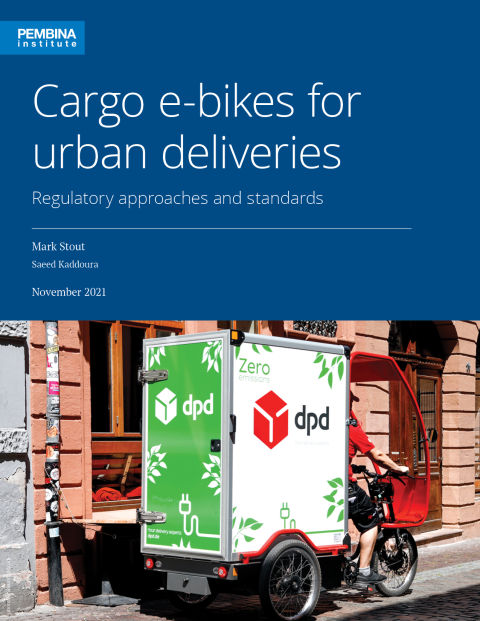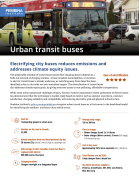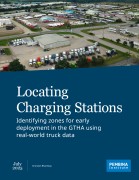Urban mobility is changing both in the movement of people and the delivery of goods. What was once the domain of vans and medium-duty trucks is now also that of electric-powered cargo cycles. Cargo cycles are a type of micromobility that takes the form of bicycles, trikes, and quadricycles. Called cargo e-bikes in this report, these devices are gaining popularity in Toronto and other cities in Canada as well as internationally.
Toronto has proactively amended its by-laws to allow pedal-assisted cargo e-bikes for personal and commercial delivery purposes, but emerging issues regarding vehicle and pedestrian safety highlight a need to examine how best to regulate cargo e-bikes. As the City of Toronto starts to update and/or create new municipal by-laws and practices for cargo e-bikes for personal and commercial use, and also develop a cargo e-bike pilot project, there are several important considerations to address that will inform policy decisions.
To inform the City of Toronto’s policy and pilot program development, the Pembina Institute identified the specifications and features of commonly used cargo e-bikes; reviewed and analyzed regulatory approaches and frameworks employed by jurisdictions across North America and Europe; and sought input from stakeholders on several important issue areas: cargo e-bike specifications, operating parameters, parking parameters, and safety considerations.





